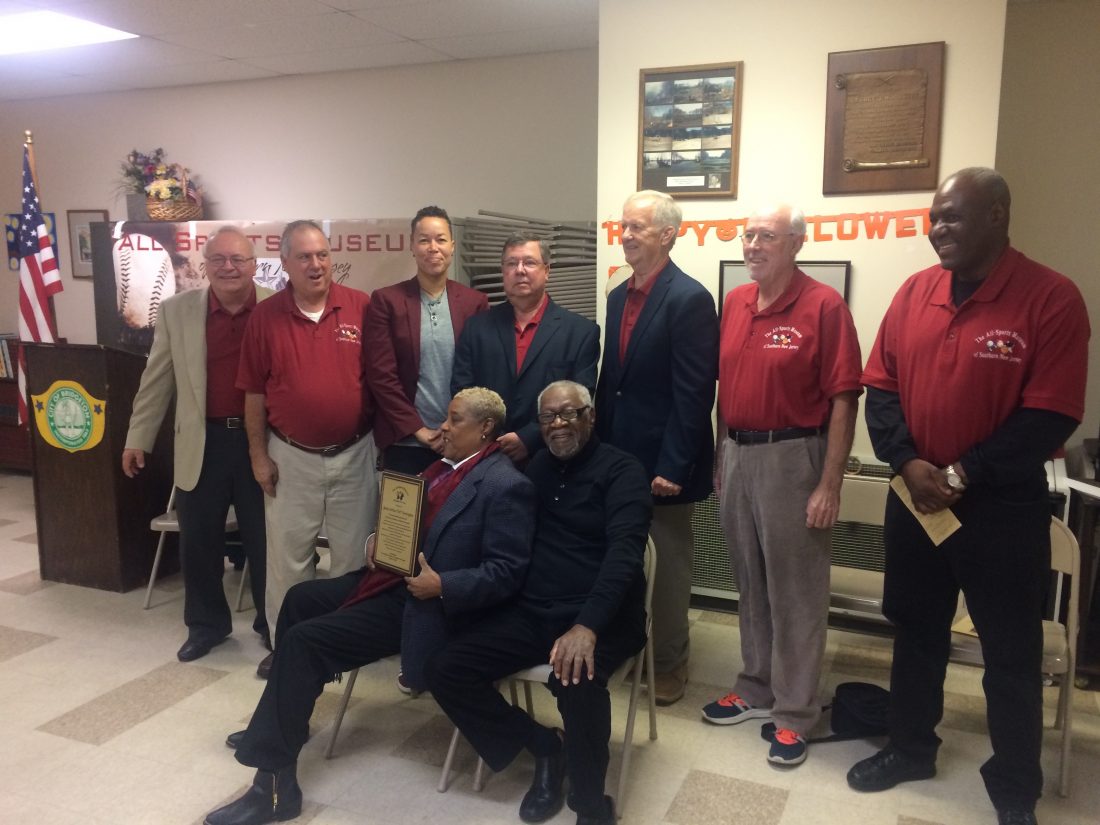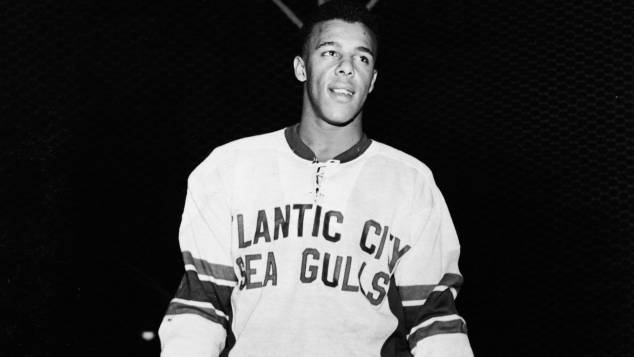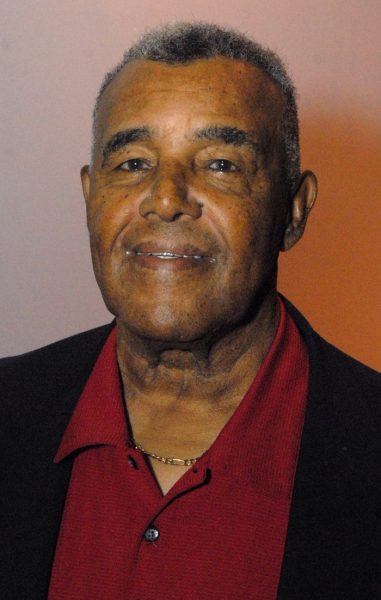
Professional Hockey
Art Dorrington was hailed by some as the Jackie Robinson of hockey for his trailblazing role in integrating the sport in the United States.
He was 20 when the Nova Scotia resident was scouted by the New York Rangers of the National Hockey League. He signed a contract with the organization and was assigned to the minor league Atlantic City Sea Gulls. A brief article in The New York Times on the signing was headlined: First Negro in U.S. hockey.
Mr. Dorrington, who has died at 87, made the New Jersey resort city his home. In earning citizenship, he became the first black player in professional hockey. A top prospect in his youth, he never played an NHL game, but became a legendary figure in Atlantic City, where a rink bears his name.
A demon skater, Mr. Dorrington also had a sniper’s eye, leading the professional Eastern Hockey League in goal-scoring in 1954-55 with 33 markers in 49 games for the Washington Lions.
Like baseball’s Mr. Robinson, Mr. Dorrington suffered from the pernicious rules of Jim Crow segregation in the United States while enduring racial slurs on both sides of the border.
James Arthur Dorrington was born on March 13, 1930, in Truro, N.S., to the former Mabel Mentis and William Dorrington, a landscaper. He learned to skate at age 3. His rinks were the icy street in front of his home and the frozen marshland surrounding his neighbourhood. As a teenager, he was a key member of a Truro Bearcats hockey team that scored an 11-8 victory over the Charlottetown Canadiens to claim the Maritime midget (under-17) championship.

Mr. Dorrington played briefly for the junior Halifax St. Mary’s before joining the senior Bearcats. The 5-foot-9, 165-pound centre also played for the Stellarton Royals and Amherst Ramblers in his home province, as well as skating for the Truro Sheiks, an all-black team that played against other black teams in the Maritimes.
In March, 1950, the Dorrington household was shaken by the sudden death of Douglas Dorrington, 19, who was taken to hospital after being seriously hurt in a hockey game. He soon after died with newspapers reporting the hockey injury as the cause, although his death certificate cites meningitis incurred after suffering a hip injury. (Doug Dorrington was referred to in reports as Art Dorrington’s brother, although they were cousins raised in the same household.)

Five months later, Art Dorrington travelled to the United States to play for a senior amateur team in New Milford, Conn. Mr. Dorrington stopped in New York for a practice session at Madison Square Garden, where he was scouted by the Rangers. They signed him to a contract paying $85 per week during the hockey season with a $100 signing bonus. He was supposed to skate for the New York Rovers, who were on a lengthy road trip. Bored and eager to play, he was instead assigned to Atlantic City, which he soon made his permanent home. The rookie centre scored 18 goals with 16 assists in 49 games.
That summer, he swapped his hockey sweater for a baseball uniform, as he patrolled the outfield for the independent Rockets of Wellsville, N.Y., a team in the Pony (Pennsylvania-Ontario-New York) League, a Class-D circuit at the bottom of baseball’s alphabet ladder.

